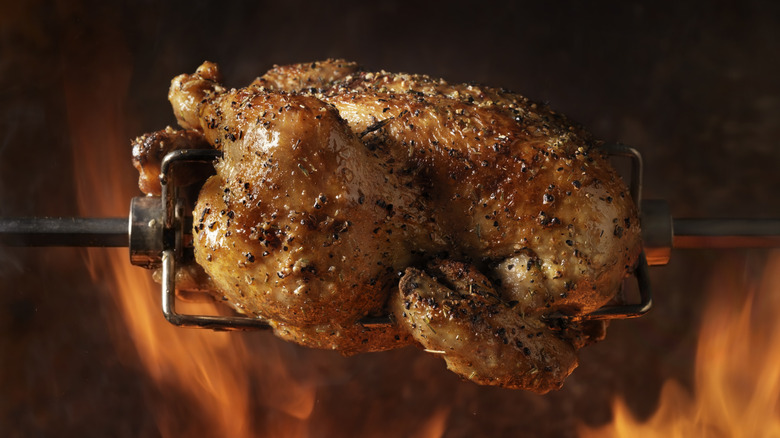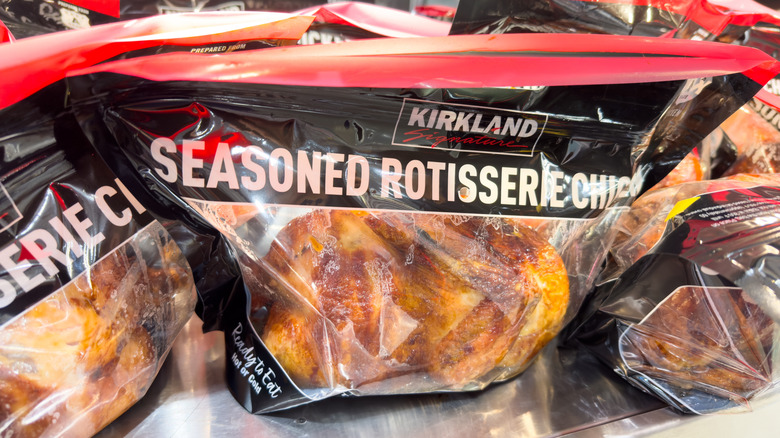Always Check This Before Buying A Rotisserie Chicken
When looking for a convenient, ready-made meal, rotisserie chicken is a popular choice. But not all store-bought rotisserie chickens are created equal, and some can taste dry and bland or contain questionable ingredients. Luckily, we have an easy tip on how to choose the best option.
When rocking up to the rotisserie selection, don't just look at the chicken itself, but at the ingredient label. You might think chickens are skewered and roasted as is, but sometimes, far more goes into making rotisserie chicken than you'd imagine. To maintain optimal moisture levels, the chicken can be marinated, brined, or injected with a solution before being roasted. The ingredients used in this preparation process aren't always limited to salt and water, but can include seasonings, sweeteners, flavorings, and preservatives. Many of these are okay, but overall, we'd avoid buying a rotisserie chicken with a long list of ingredients, particularly unfamiliar, hard-to-pronounce chemicals.
Rotisserie chicken does need some salt or seasonings, but too many ingredients could mean the grocery store is overcompensating. In an interview with The Takeout, chef and food blogger Scott Groth explains, "Oftentimes, grocery stores add flavoring enhancements to inexpensive chickens. If the chicken has a ton of ingredients you don't recognize on the label, it will most likely be dry after it is cooked." So, when choosing the best store-bought rotisserie chicken, scan that nutrition label!
Ingredients to avoid in rotisserie chicken
A long list of questionable ingredients is a rotisserie chicken red flag. Quality chicken needs minimal ingredients to taste delicious, so when the nutrition label rivals a CVS receipt, we worry the store is compensating for subpar meat. So what ingredients should you look out for? Laboratory-sounding preservatives or anything that probably shouldn't belong in chicken. A prime example is Costco's Kirkland Signature rotisserie chicken, which contains ten ingredients, including sweeteners like sugar and dextrose and additives like sodium phosphate and carrageenan.
One of the many rotisserie chicken myths is that it must contain strange additives. Quality rotisserie chicken can hold its own — as several store-bought varieties have proven. Whole Foods' organic rotisserie chicken is made with solely organic chicken, salt, and organic black pepper, and Kroger's contains just chicken, water, and sea salt. While these are two solid options, home-roasting your chicken gives you complete ingredient control. And for the juiciest flavor, avoid these common rotisserie chicken cooking mistakes like forgetting to baste and not rotating the spit.
Static Media owns and operates Daily Meal and The Takeout.

